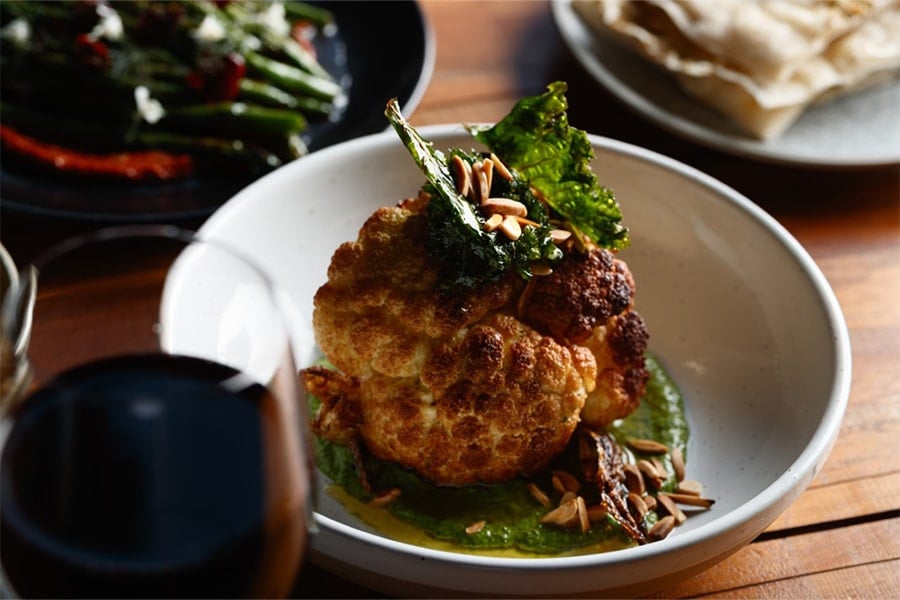
The very mention that you’re on a plant-based diet will catapult you to new levels of cool these days, especially among the health and wellness crowd. But why is it suddenly becoming so popular? Mostly because it's becoming hard to ignore the health and environmental benefits that come with making the switch.
But what exactly is a plant-based diet? Do you have to cut out meat like a vegan or vegetarian? Or does it simply mean that you eat more food sourced from plants? And can you really get all the protein you need if you don’t eat meat?
I'm here to address these questions one by one. And if you're looking for ways to maintain a healthy intake of protein after making the switch, read on.
What is a plant-based diet?
Technically, vegans and vegetarians follow a plant-based diet, and the terms are often used synonymously. But for many, following a plant-based diet simply means that most of your diet, but not necessarily all, consists of plant-based food sources.
Do you have to cut out meat on a plant-based diet?
The concept of a plant-based diet means that plant foods make up the main portion of your diet. Fruit, vegetables, legumes, nuts, seeds, and whole grains are your primary food sources, but you can still eat small amounts of dairy, eggs, fish, and even meat if you choose.
It’s entirely up to you how restrictive you want to be. You could completely eliminate all animal-derived foods, or you could include eggs and dairy, seafood, poultry, or meat occasionally.
Plant-based is more like a category of diets, rather than one specific eating plan. For example, the Mediterranean diet incorporates small amounts of seafood and poultry, but the emphasis is on plant foods. Many diets, such as Whole30, can be adapted to be more plant-based if that’s your preference.
Why are plant-based diets such a hot topic these days?
Most people are making the switch to a plant-based diet for the potential health benefits. This style of eating is better for your heart, cholesterol levels, and maintaining a healthy weight. It may also support fertility and reduce your risk of developing a chronic disease, such as diabetes or cancer.
Some studies even suggest that diets rich in plant protein increase longevity in general. In fact, simply increasing your intake of fruits, vegetables, and legumes to three or four servings a day may lower your risk of early death.
Can you get enough protein on a plant-based diet?
If you’ve ever mentioned to a friend or family member that you were thinking about making the switch, the first comment you probably heard is, “How are you going to get enough protein?” There’s an overwhelming amount of misinformation out there on this subject, and while some concern is understandable, there’s really no reason to worry.
There’s no question that protein is essential for overall health, but you may not need as much of it as you think. For most people, even those who lead an active lifestyle, 10-15% percent of your daily calorie intake should be protein. And most of us are getting 70% more protein than we actually need each day.
People who suffer from protein deficiency, whether they’re plant-based or not, are usually malnourished overall and not getting enough calories to begin with. In these cases, increasing calorie intake is much more important than focusing on adding more protein because the individual is deficient in all nutrients since they’re not eating enough.
Where does protein come from in a plant-based diet?
The best way to ensure that you’re getting enough protein on a plant-based diet is to eat a variety of whole foods every day. Many whole plant foods are very rich in protein, including:
- Beans and Legumes
- Nuts
- Seeds
- Whole grains
Even leafy greens and many other vegetables have a substantial amount of protein.
The Best Sources of Healthy, Plant-Based Protein
Soybeans
Soybeans are an excellent source of plant-based protein because they are considered a whole protein. Edamame, which is steamed soybeans, provides all eight essential amino acids, as well as iron, calcium, folate, vitamin K, and fiber.
If you’re looking for a convenient source of soy-based protein on the go, Soylent’s soy protein shakes are a great choice. They provide all of the protein and nutrition you would get from a complete meal in a variety of delicious flavors.
Tofu is another great way to incorporate soy protein into your diet. It doesn’t have much taste on its own, but it takes on other flavours and can be used in all sorts of recipes, from burgers to desserts.
Lentils
Lentils contain eighteen grams of protein in just one cup after cooking. They’re extremely versatile and can be incorporated into everything from salads to soup. They’re also a great source of fiber and complex carbs, which are essential for gut health. They also contain iron, manganese, and folate, as well as important antioxidants.
Nutritional Yeast
Nutritional yeast comes in flake or powder form. Its cheesy flavour makes it a great choice for sprinkling on popcorn and pasta or adding to things like scrambled tofu and mashed potatoes.
Nutritional yeast is another complete protein. It also provides plenty of fibre. Fortified nutritional yeast is also available, which is a great source of B vitamins, copper, zinc, and magnesium.
Nuts and Seeds
Nuts and seeds are fantastic sources of plant-based protein, with most containing between 5-7 grams of protein per ounce. They also contain healthy fats, fibre, iron, calcium, magnesium, vitamin E, B-vitamins, antioxidants, and more.
Choose raw nuts and seeds because roasting and blanching can destroy nutrients. And avoid nut butters made with sugar and excess salt.
The Bottom Line
Protein deficiencies on a plant-based diet are far from the norm if you’re eating a variety of whole foods. But if you’re still concerned, plant proteins above can be used to boost your protein intake and a variety of other nutrients, too. And, even if you’re not ready to make the switch, incorporating more plant-based protein into your current diet can be extremely beneficial for your health.
As always, every body is different. If you're looking to make any changes to your diet you should always consult a health professional first, like a GP or Dietitian. This will empower you to make informed decisions that make sense for your own unique circumstances.
Image: Laila Gohar, Danielle Opatovsky



